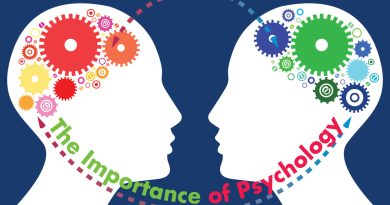Understanding Schizophrenia: A Comprehensive Overview of Health and Medical Challenges
Schizophrenia is a chronic and often misunderstood mental health condition that affects approximately 1 in 100 people worldwide. This complex disorder can manifest in various ways, presenting a wide range of symptoms that interfere with daily functioning and quality of life. Individuals with schizophrenia may experience hallucinations, delusions, disorganized thinking, and cognitive impairment, which can make managing the disorder incredibly challenging. In this guest post, we will explore the health and medical problems associated with schizophrenia, discuss its causes and risk factors, and examine treatment options, as well as strategies for improving the lives of those affected by the condition.
What is Schizophrenia?
Schizophrenia is a serious health and medical problems associated with schizophrenia that affects how a person thinks, feels, and behaves. People with schizophrenia may experience distorted perceptions of reality, leading to behaviors and thoughts that are considered unusual or irrational. Schizophrenia is characterized by the presence of psychotic symptoms, such as hallucinations and delusions, as well as negative symptoms, which include apathy, lack of emotion, and difficulty in functioning socially or professionally.
The symptoms of schizophrenia can be divided into three main categories:
1. Positive Symptoms
These symptoms reflect an excess or distortion of normal functioning. Common positive symptoms of schizophrenia include:
- Hallucinations: Sensory experiences that occur without external stimuli. The most common form of hallucination in schizophrenia is auditory, where individuals hear voices that others do not.
- Delusions: Strongly held false beliefs that are resistant to reasoning or contrary evidence. For example, a person may believe they are being persecuted or that they possess extraordinary powers.
- Disorganized Thinking: Individuals may have trouble organizing their thoughts, leading to incoherent speech or difficulty following a conversation. Thoughts may become fragmented or illogical.
2. Negative Symptoms
Negative symptoms refer to a decrease in the ability to function normally. These include:
- Apathy: A lack of motivation or interest in everyday activities, including work, social interactions, and personal hygiene.
- Social Withdrawal: A person may avoid social interactions and isolate themselves from others, which can contribute to feelings of loneliness and depression.
- Flattened Affect: Reduced emotional expression, where the person may appear unresponsive or indifferent, even in situations where emotions would typically be expected.
3. Cognitive Symptoms
Cognitive symptoms affect memory, attention, and executive functioning. People with schizophrenia may experience:
- Impaired Working Memory: Difficulty holding information in mind and using it to perform tasks.
- Attention Problems: Difficulty concentrating and staying focused on a task.
- Executive Dysfunction: Challenges in organizing, planning, and making decisions, which can impact daily activities and responsibilities.
Causes and Risk Factors of Schizophrenia
Schizophrenia is a complex condition with no single known cause. It is believed to result from a combination of genetic, biological, and environmental factors.
1. Genetic Factors
Schizophrenia tends to run in families, and individuals with a first-degree relative who has the disorder are at a higher risk of developing it. However, most people with schizophrenia do not have a family history of the illness. Studies indicate that there may be multiple genes involved in the development of schizophrenia, although none are definitive or fully understood.
2. Biological Factors
- Brain Structure and Chemistry: Abnormalities in brain structure and functioning are thought to play a role in schizophrenia. For example, research suggests that individuals with schizophrenia may have enlarged ventricles in the brain, which can indicate a loss of brain tissue. Chemical imbalances, particularly involving neurotransmitters like dopamine and glutamate, are also implicated in the disorder.
- Prenatal Factors: Exposure to infections, malnutrition, or stress during pregnancy may increase the likelihood of schizophrenia developing later in life.
3. Environmental Factors
Certain environmental factors, particularly during childhood or adolescence, may contribute to the development of schizophrenia. These factors can include:
- Traumatic Experiences: Early life trauma, such as abuse, neglect, or the loss of a parent, has been linked to an increased risk of developing schizophrenia.
- Drug Use: Substance use, particularly the abuse of drugs like marijuana, LSD, and amphetamines, may trigger schizophrenia or exacerbate symptoms in individuals who are predisposed to the disorder.
- Stress: Life stressors, such as the death of a loved one, a significant move, or the pressures of school or work, may act as triggers for the onset of schizophrenia in individuals already at risk.
Health and Medical Challenges of Schizophrenia
Living with schizophrenia presents a variety of health and medical challenges, both related to the disorder itself and the broader impact on a person’s life.
1. Medical Complications
Individuals with schizophrenia are at higher risk for several medical conditions, including:
- Cardiovascular Disease: People with schizophrenia are more likely to develop heart disease, possibly due to factors such as poor diet, lack of exercise, smoking, and the side effects of medications used to treat the disorder.
- Metabolic Disorders: Antipsychotic medications, commonly used to treat schizophrenia, can cause weight gain, insulin resistance, and diabetes. This is a significant concern, as these metabolic changes can increase the risk of developing cardiovascular disease and other health issues.
- Substance Abuse: As mentioned earlier, many individuals with schizophrenia struggle with substance abuse. This can exacerbate symptoms, complicate treatment, and increase the risk of developing physical health problems.
- Poor Physical Health: Schizophrenia often affects a person’s ability to take care of their physical health. Social withdrawal, lack of motivation, and cognitive impairments may make it harder for individuals to maintain proper hygiene, exercise, or follow a healthy diet, leading to further medical complications.
2. Impact on Daily Functioning
Schizophrenia significantly impacts a person’s ability to function in everyday life. The cognitive and negative symptoms can make it difficult for individuals to maintain relationships, hold a job, or live independently. Individuals may need assistance with daily tasks, and in some cases, they may require ongoing support from family members, caregivers, or health and medical problems associated with schizophrenia.
3. Co-occurring Mental Health Disorders
Schizophrenia often co-occurs with other mental health conditions, including depression and anxiety. These disorders can make the symptoms of schizophrenia more difficult to manage and may require health and medical problems associated with schizophrenia are also at an increased risk for suicide, with some studies estimating that up to 10% of people with schizophrenia may die by suicide.
Treatment for Schizophrenia
Although there is no cure for schizophrenia, it is a treatable condition. The primary goal of treatment is to manage symptoms, improve functioning, and enhance quality of life. Effective treatment often involves a combination of medication, therapy, and social support.
1. Medications
Antipsychotic medications are the cornerstone of treatment for schizophrenia. These medications help reduce the severity of positive symptoms like hallucinations and delusions. Newer antipsychotics, known as atypical antipsychotics, are commonly prescribed because they tend to have fewer side effects than older medications.
2. Therapy and Psychosocial Support
Psychotherapy, particularly cognitive-behavioral therapy (CBT), can help individuals with schizophrenia understand their condition, cope with symptoms, and improve their quality of life. Social skills training, vocational rehabilitation, and family therapy are also essential components of treatment, as they focus on improving communication, social functioning, and independent living.
3. Supportive Services
Individuals with schizophrenia often benefit from the support of community-based programs, including case management, peer support, and housing assistance. These services help individuals navigate daily life and reduce the need for hospitalization, promoting greater independence and social integration.
Conclusion
Schizophrenia is a complex and challenging mental health disorder that impacts millions of individuals worldwide. Although it can be difficult to manage, with appropriate treatment and support, individuals with schizophrenia can lead fulfilling and productive lives. By increasing awareness, reducing stigma, and improving access to care, we can help those affected by schizophrenia overcome obstacles and thrive in their communities. Mental health professionals, family members, and society at large play critical roles in ensuring that individuals with schizophrenia receive the support they need to live well and manage their condition.




